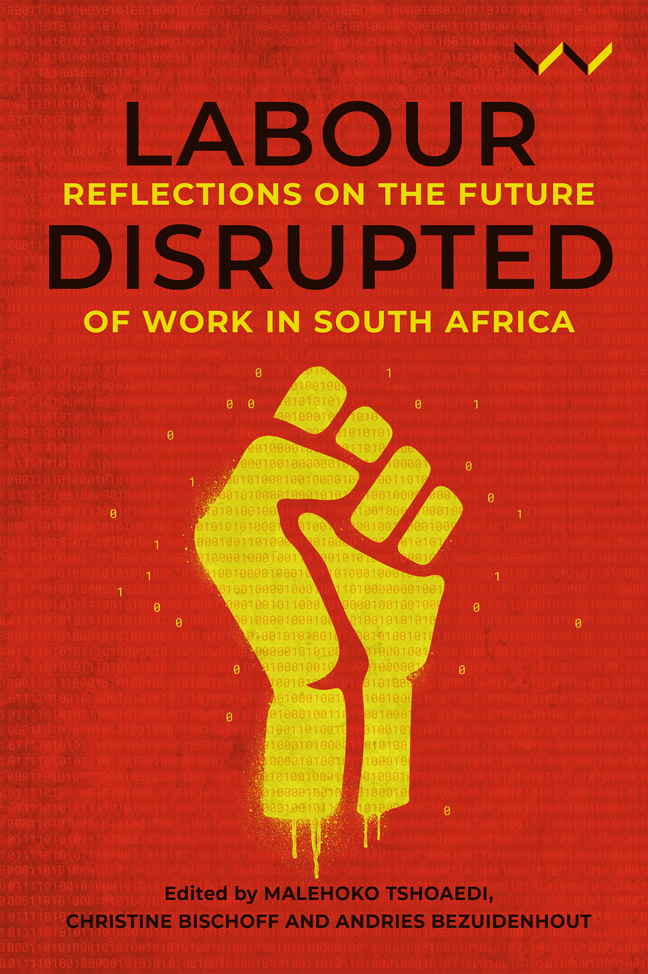Book contents
- Frontmatter
- Contents
- Figures and Tables
- Acknowledgement
- Acronyms
- Introduction: Disruptions and New Directions in South African Labour Studies
- Chapter 1 Fragmented Labour Movement, Fragmented Labour Studies: New Directions for Research and Theory
- PART I Changing Solidarities
- PART II Technology and Work
- PART III New Forms of Organising
- PART IV Labour and Lockdown
- Conclusion: Questions, Answers and New Directions
- Contributors
- Index
Conclusion: Questions, Answers and New Directions
Published online by Cambridge University Press: 01 March 2024
- Frontmatter
- Contents
- Figures and Tables
- Acknowledgement
- Acronyms
- Introduction: Disruptions and New Directions in South African Labour Studies
- Chapter 1 Fragmented Labour Movement, Fragmented Labour Studies: New Directions for Research and Theory
- PART I Changing Solidarities
- PART II Technology and Work
- PART III New Forms of Organising
- PART IV Labour and Lockdown
- Conclusion: Questions, Answers and New Directions
- Contributors
- Index
Summary
INTRODUCTION
The chapters collected in this volume raise new topics for South African labour studies, but they also point to the need to return to past debates. In this concluding chapter, we provide an overview and highlight some of these new foci and how they relate to more established (and at times forgotten) debates. We are interested in challenges posed by this to both the labour movement and to South African labour studies more generally. We introduced the volume with an appreciation of the challenge posed to South African workers and the labour movement by the Covid-19 pandemic. All of this happened in the context of a fragmented labour movement, described by labour scholars and in the popular media as being weak and lacking direction. Not surprisingly, both the virus and the lockdown that was intended to slow its spread had major negative impacts. Like the rest of the world, we have experienced the shock of family, friends and colleagues dying because of the pandemic, of fellow workers losing their jobs and livelihoods, as well as the tragic death of a number of prominent union leaders, including the general secretary of the National Union of Mineworkers. But we also argued that the pandemic, probably ironically so, posed challenges to the labour movement that focused the minds of members and leaders alike, and led to the emergence of renewed interest in working-class unity. Old and new enemies jointly participated in some of the campaigns that challenged government's response to the pandemic. All of this happened while South Africans, in lockdown mode, were following the drama on television and other media platforms around state capture in the form of the Zondo Commission of Enquiry.
Much of the research for the chapters in this volume started before the Covid-19 pandemic, and not all the chapters deal directly with this topic and its fallout. Nevertheless, they all highlight in some way that a major international health crisis, which also precipitated an economic crisis, tended to be felt along the contours of existing fault lines. A crisis tends to focus our attention on questions that have lurked in the background. So we start our discussion here with the chapter preceding this one, where Christine Bischoff clearly illustrates this point about fault lines. As could be expected, vulnerable workers in vulnerable sectors were affected more severely than others.
- Type
- Chapter
- Information
- Labour DisruptedReflections on the Future of Work in South Africa, pp. 309 - 326Publisher: Wits University PressPrint publication year: 2023



